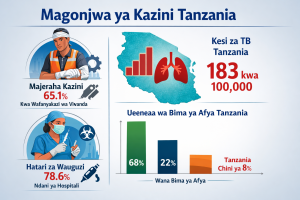
This is Where the Global Private Sector is Looking to Invest in Africa and Why It Matters
Investment in Africa Action Plan
At this year’s Africa Property Dialogue held in Ghana, the AfCFTA secretary-general shared Africa’s economic renaissance under the framework with an expected 4% growth in 2024. This underlines a crucial starting point towards the realization of a single market area, under the African Continental Free Trade Area Agreement that is expected to increase real incomes by 7% and nearly $450 billion by 2063. Notably, the secretary general noted that the positioning of the continent as a leader in the global economy lies in transforming it into a manufacturing and innovation powerhouse.
Considering that the continent accounts for only 1.7% of participation in the global value chains, collaboration among nations and the inclusion of the private sector in implementing the framework is a missing link. This is a sure way of incorporating the targeted 1.7 billion people into the single market and achieving the projected $6.7 trillion in consumer and business spending by 2030. These aspirations can be realized under the recently launched action plan to accelerate global business and investment in Africa under the AfCFTA and the World Economic Forum to include the private sector in the implementation. The question therefore emerges on what actions the partners will need to undertake to turn the transformative opportunities offered by the AfCFTA into tangible reality.
A Four Industry Focus
With a combined worth of $130 billion, the action plan outlines four sector priorities in automotive, agriculture Agro-processing, pharmaceuticals, and transport and logistics. So far, the blueprint has attracted 12 partners with specific initiatives, projects, and investments including the mobilization of finances on infrastructure upgrades, deployment of green technology, and expansion of agriculture value chains across the continent.

by 574% if import tariffs are eliminated, and Africa’s food and
agriculture market could reach $1 trillion.
Africa’s economic transformation is highly pegged on agriculture and agro-processing considering that while the continent has the world’s 60% of uncultivated arable land, the sector accounts for 35% of GDP contribution and employs more people than any other sector. With an expected market of US$1 trillion by 2030, expanding the sector’s value chains in Africa could help the continent easily meet its recurring food demand needs. The implementation of the action plan will see the private sector exploit opportunities in irrigation, fertilizer manufacturing, storage and delivery, and value-added processing. The collaboration is therefore critical in enhancing Africa’s food security and positioning the continent as a global food exporter. With various partners targeting different elements of the value chain, multi-stakeholder participation, public-private partnerships, and innovative financing can accelerate the realization of the aspirations. Under the framework, the elimination of tariffs is expected to increase intra-African agriculture by 574% by 2030.
Africa suffers from a critical transport and logistics infrastructure deficit with only 43% of the population having access to all-season roads. As the AfCFTA trade volumes increase, high demand for reliable transport and logistical infrastructure will emerge creating opportunities for the private sector investment in freight, air, and maritime transport. The forum partnership underlines the need for the private sector to connect local and international companies across the continental market to facilitate trade and attract increased foreign investment. Thus, this will see an increase in investment in ports, warehouses, and logistical centers to facilitate the seamless transport of goods across the continent. The AfCFTA thus envisions an increase in intra-African trade demand by 28% with a demand for over 2 million trucks, 100,000 rail wagons, 250 aircraft, and over 100 vessels by 203.
Africa’s automotive industry was valued at $30.44 billion in 2021 and is expected to expand by 40% to reach $42.06 billion by 2027 indicating that the industry is ripe for new and increased investments under the AfCFTA. This is considering that 80% of the industry manufacturing is dominated by South Africa and Morocco making a business case for private sector partnership to expand into other areas of the continent. The AfCFTA is thus opening new opportunities in manufacturing with the potential of the continent becoming a leader in electric vehicle production and experiencing an industry growth of more than $42 billion by 2027. The focus of the blueprint is therefore on increasing manufacturing of 4 to 5 million units by 2035 and growing investment in manufacturing plants across the continent. The forum is therefore critical in underlining the acceleration of private sector engagement in the automotive sector, adoption of compatible national policies, and deployment of new technologies for accelerated industry growth.
An envisioned strengthened public health through a local innovative pharmaceutical industry in Africa under the Sustainable Development Goals and African Union’s 2063 agenda has been elusive. Critical to this goal is the harmonization of regulations and the reduction of trade barriers under the AfCFTA to allow the industry to meet local demand. Partners within the sector are keen on addressing short-term challenges, including skills development, vaccine technology transfer, and research and development deficiencies that have stagnated the industry. The industry will also likely benefit from multi-stakeholder dialogue, engagement, and participation to enhance competitiveness and sustainable access to healthcare. The AfCFTA projects an increase in intra-African trade in pharmaceutics from the current 3% to create a more resilient health supply chain.
Private-sector engagement and transformation
The private sector engagement and collaboration action plan underscores a useful tool that can help companies to better understand their overall strategies initiatives, and policy recommendations in emerging sectors. The prioritization of the four critical sectors under the AfCFTA provides a roadmap for the implementation of the single continental market with room for enhanced private partnerships and national collaboration to drive success. In this framework, the private sector can easily allow global businesses and investors to understand the biggest trends, opportunities, and strategies for successful investment and high returns in the continent.



